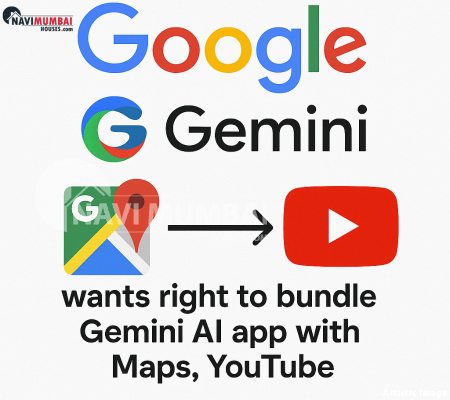
Google is asking a U.S. federal judge to allow it to bundle its recently launched Gemini AI app into its flagship apps — YouTube and Maps — essentially requiring device makers to include Gemini when distributing those apps.
This request comes amid a backdrop of antitrust scrutiny, where Google’s previous bundling practices (e.g., search defaults, Chrome) have been contested. Critics argue that bundling a powerful AI tool could give Google new leverage in emerging AI markets.
What Exactly Is Google Seeking & Why
What Google Wants
-
To retain the right to bundle Gemini AI with Maps, YouTube, and other apps across devices.
-
Google contends that AI is a nascent market and that forcing “unbundling” would hamstring innovation.
-
The company likens it to Microsoft bundling Copilot with Office, arguing that bundling non-monopoly apps shouldn’t be treated like a dominance violation.
Why Google Argues Bundling Is Important
-
Seamless AI experiences: By embedding Gemini within YouTube and Maps, users can get context-aware summaries, navigation suggestions, content insights, etc., without needing a separate app.
-
Data synergy & learnings: Integrating Gemini across apps allows Google to use cross-app signals (video, location) to improve AI models.
-
Competitive positioning: Google wants to avoid restrictions that might hinder its ability to scale Gemini across its ecosystem.
Antitrust Risks & Pushback
While Google frames this as forward innovation, critics and regulators see several red flags:
-
Foreclosure risks: Bundling could tilt the playing field — forcing device makers to carry Gemini may make it harder for rival AI apps to compete.
-
Leverage of dominant channels: YouTube and Maps are widely installed; bundling Gemini gives Google strong distribution leverage.
-
Precedent from search remedies: In its search case, Google was restricted from making exclusive bundling deals. The court has already shown skepticism toward default bundling.
-
Judicial concerns: Judge Amit Mehta has questioned whether requiring device makers to bundle AI with Maps/YouTube gives undue advantage to Gemini.
-
User choice & consent: Would users be forced to accept Gemini even if they prefer alternatives? Transparency and opt-out options matter.
Some regulators have proposed remedies that block Google from bundling or require it to license integration non-exclusively.
What to Watch
-
Court’s remedy language: Whether the judge allows bundling under constraints (opt-out, data isolation) or disallows it outright.
-
How Google structures the bundling: Whether it’s forced, opt-in, or integrated in a modular way.
-
Effect on rival AI companies: Whether bundling stifles competition or pushes rivals toward interoperability.
-
User consent & privacy safeguards: How Gemini will access and use data across apps.
-
Regulatory responses globally: EU, India, etc., may scrutinize similar integration strategies.
Takeaways
Google’s push to bundle the Gemini AI app with YouTube and Maps is a bold maneuver that pits its vision of integrated AI against antitrust guardrails. While the user experience case is compelling, the potential competitive risks are substantial. The court’s ruling will not only shape Google’s AI strategy but also set a precedent for how platforms can integrate AI across their dominant channels.
If you like, I can also prepare visual summaries (bundle vs antitrust risk tables, flow of data integration) to accompany your write-up.
Visit Us: http://www.navimumbaihouses.com Or Contact Us: tel:8433959100
The post Gemini Integration Battle: Google Seeks to Bundle AI with Maps and YouTube appeared first on .

